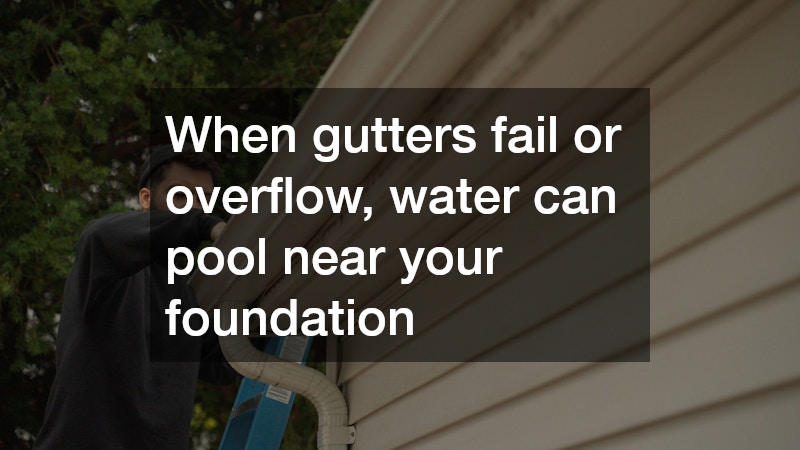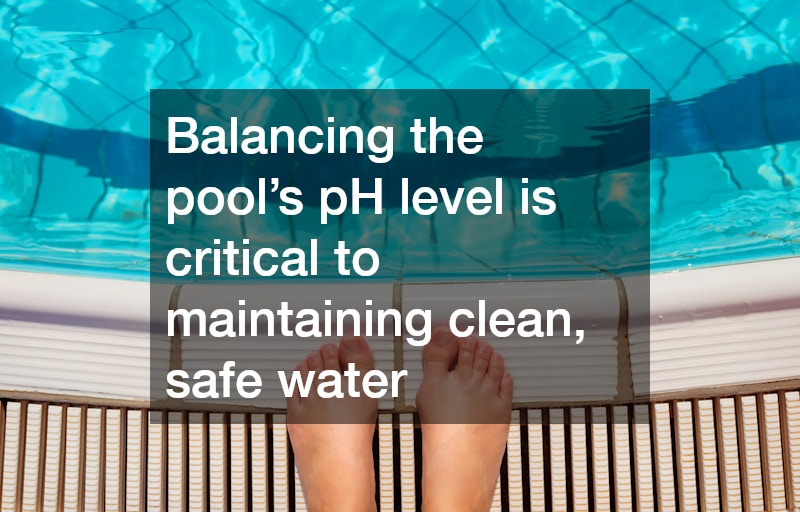Whether you’re planning an extended vacation, seasonal travel, or a temporary relocation, preparing your home properly before leaving is essential to avoid costly damage and security issues. Leaving a home unattended for weeks or months requires more than just locking doors and turning off lights. From structural maintenance to pool care and security upgrades, taking a comprehensive approach ensures your property remains safe, functional, and well-maintained until you return.
In this guide, we walk through actionable steps across critical areas of your home, helping you minimize risks and maintain peace of mind during your absence.
The roof serves as the critical barrier protecting your home from rain, snow, wind, and extreme temperatures. Its condition directly impacts not only the safety of your household but also the overall integrity of the structure. Over time, weather exposure can cause wear and tear—shingles can loosen or crack, flashing around chimneys and vents can deteriorate, and water can seep through unnoticed cracks. These small problems, if ignored, may lead to significant damage like mold growth, rotted wood, or even structural weakening.
Scheduling a comprehensive inspection by professional roofers is one of the most important preparatory steps before an extended absence. Skilled roofers conduct a thorough examination, looking closely at several critical areas:
-
Shingles: Missing, cracked, curling, or otherwise damaged shingles are a common source of leaks. Roofers will check the entire roof surface for these signs, as even a few compromised shingles can allow water infiltration.
-
Flashing and Sealants: Flashing—the metal strips around chimneys, vents, and roof edges—acts as a seal to prevent water from entering joints. Roofers inspect flashing for rust, cracks, or separation. Sealants applied to these areas are also checked for cracking or peeling.
-
Attic and Ceiling Conditions: Signs such as sagging roof sections or water stains on attic ceilings indicate existing leaks or trapped moisture. Roofers often examine these interior areas as part of their assessment, identifying hidden damage that might not be obvious from the outside.
-
Debris and Drainage: Leaves, branches, and dirt accumulating on the roof can trap moisture, increasing the risk of rot or ice dams in winter. Blocked drainage paths encourage water pooling, which accelerates wear. A good inspection will include debris removal recommendations.
Early detection and prompt repair of these issues are essential to prevent leaks that can cause interior water damage, encourage mold growth, and weaken your home’s structural components. Left unattended during a long absence, these problems can escalate and become costly emergencies, especially when you’re not on-site to intervene.
When selecting roofers for this task, it’s important to choose reputable, licensed professionals who understand the unique needs of homeowners preparing for extended time away. Look for:
-
Local Experience and Licensing: Verified credentials ensure adherence to building codes and industry standards, plus familiarity with local climate conditions that affect roofing materials.
-
Detailed Inspection Reports: Comprehensive reports with photos and clear repair estimates help you understand the condition of your roof and plan necessary maintenance or budgeting.
-
Specialization in Long-Term Home Preparations: Roofers who have worked with clients leaving for long periods will be aware of critical issues to address to minimize risks while the home is unoccupied.
Addressing minor roofing problems before departure not only prevents emergencies but also provides reassurance that your home’s protective envelope is sound.
In addition to roof repairs, paying close attention to your gutters is vital. Gutters that are clogged with leaves, twigs, or other debris can cause water to overflow during rainstorms. This overflow can damage your home’s exterior siding, erode soil near the foundation, or seep into the basement, leading to costly water damage. Cleaning gutters thoroughly and repairing any damaged sections ensures proper water drainage away from your home. Sometimes roofers offer gutter maintenance as part of their service; if not, consider hiring a specialist to handle this task.
Ensure Proper Gutter Maintenance to Prevent Water Damage
Gutters channel rainwater away from your home, protecting the foundation and basement from moisture intrusion. When gutters fail or overflow, water can pool near your foundation, increasing the risk of leaks and structural damage.
Before leaving, schedule gutter repairs or maintenance if you notice:
-
Sagging or detached sections
-
Leaks or cracks in gutter joints
-
Clogged downspouts causing slow drainage
-
Water spilling over the edges instead of flowing through the downspouts
Professional gutter repairs can seal leaks, reattach loose segments, and install guards to reduce debris buildup.
Regular gutter maintenance reduces the chances of water-related issues while you’re away, complementing other preventive measures like basement waterproofing.
Protect Your Basement with Waterproofing and Prevent Moisture Issues
Basements are particularly vulnerable to water damage, especially during heavy rains or snowmelt seasons. A wet basement can lead to mold, mildew, and structural weakening, which can be costly and hazardous.
To safeguard your basement:
-
Schedule a basement waterproofing service to seal cracks, install drainage systems, or apply waterproof coatings
-
Inspect sump pumps to ensure they function correctly and consider adding a battery backup system
-
Check exterior grading to confirm water flows away from the foundation
Basement waterproofing specialists can assess your home’s unique needs and recommend tailored solutions. This step is crucial if your property has a history of basement moisture problems or sits in a flood-prone area.
Pairing basement waterproofing with prior roof and gutter maintenance creates a comprehensive shield against water intrusion.
Maintain Your Pool with Expert Cleaning and Chemical Balance
If your home includes a pool, its maintenance can’t be overlooked during extended absences. Neglecting pool care risks algae buildup, equipment damage, and unsafe water quality upon your return.
Professional pool cleaning services typically handle:
-
Regular debris removal
-
Filter and pump maintenance
-
Algae prevention and treatment
In addition, balancing the pool’s pH level is critical to maintaining clean, safe water and prolonging the life of pool components. Imbalanced pH can cause corrosion, scaling, and cloudy water.
Scheduling regular pool cleaning services and ph balance pool maintenance before and during your absence ensures your pool stays in good condition. Many companies offer maintenance packages that include routine visits, water testing, and chemical adjustments, which can be customized based on the length of your trip.
By keeping your pool clean and chemically balanced, you avoid costly remediation efforts and preserve the enjoyment of your outdoor space.
Secure Your Home with Advanced Access Control and Surveillance
Home security is paramount when you’ll be away for an extended period. Installing a reliable security gate system acts as a physical barrier against unauthorized entry and theft, particularly for homes in high-traffic or vulnerable areas.
Modern security gate systems come with features such as:
-
Remote access control via smartphone apps
-
Integration with cameras and alarm systems
-
Automatic locking mechanisms
-
Visitor management options
Beyond gates, updating your personal insurance to reflect your absence and security improvements ensures financial protection against theft, vandalism, or accidental damage. Review your homeowner’s policy to confirm coverage limits and claims processes related to unoccupied properties.
Enhancing security while away provides peace of mind that your home remains protected, and can even deter potential burglars looking for easy targets.
Properly preparing your heating and cooling systems before leaving your home vacant for an extended period is essential to avoid damage and maintain system efficiency. HVAC systems that are left unattended without the right precautions can develop issues that lead to costly repairs and compromise your home’s safety and comfort.
One of the primary risks during long absences is mold growth within the HVAC system. When humidity levels fluctuate and air circulation is reduced, moisture can accumulate in ducts or on components such as coils and drip pans. This environment encourages mold and mildew, which not only damages your system but also poses health risks when you return. Another common concern in colder climates is frozen pipes or components within your heating system if temperatures drop too low, potentially causing burst pipes or damage to furnace parts. Conversely, in warmer regions, neglecting cooling system maintenance can result in clogged filters, refrigerant leaks, or compressor failures.
To mitigate these risks, it is highly advisable to engage heating and cooling companies to perform comprehensive inspections and servicing before you leave. These professionals will:
-
Check and clean air filters, coils, and vents to ensure proper airflow and system efficiency
-
Inspect ductwork for leaks or blockages that could worsen over time
-
Verify the condition and operation of thermostats, fans, and compressors
-
Test electrical connections and safety controls to prevent malfunctions
-
Flush and treat drainage pans to prevent standing water and mold growth
If you notice any signs of malfunction, such as inconsistent heating or cooling, strange noises, or increased energy bills, schedule furnace repair or air conditioning servicing promptly. Addressing these issues before departure reduces the likelihood of breakdowns when the system is inactive, which can be difficult and expensive to fix remotely.
Adjusting thermostat settings strategically also plays a vital role in protecting your HVAC system. Set your thermostat to an energy-saving mode that maintains a safe minimum temperature in winter to prevent freezing pipes—generally around 55°F (13°C). In warmer months, set it to a temperature that keeps humidity in check and prevents excessive heat buildup, typically around 78°F (26°C). Avoid completely shutting off your HVAC system, as stagnant air and uncontrolled temperatures can promote moisture problems and mechanical wear.
For enhanced control, consider installing programmable thermostats or smart home devices. These allow you to monitor and adjust your home’s temperature remotely via smartphone apps. Smart thermostats can also send alerts if temperatures fluctuate outside your preset ranges, enabling you to respond quickly or notify a local service provider. Some advanced systems even detect maintenance needs, helping prevent costly issues before they occur.
Plan Outdoor Care with Regular Lawn and Landscape Maintenance
A neglected yard can quickly become overgrown and unkempt, inviting pests and diminishing your home’s curb appeal.
Hiring a landscaping company before you leave ensures your lawn and garden remain well-maintained with services such as:
-
Lawn mowing and edging
-
Tree and shrub pruning
-
Seasonal planting and fertilization
-
Irrigation system monitoring
Clear communication with your landscaping company is key. Provide detailed instructions about preferred schedules, specific plant care, and any areas requiring special attention.
A maintained yard not only preserves your property’s value but also signals to potential intruders that your home is cared for and monitored.

Review and Update Your Personal Insurance for Comprehensive Coverage
Insurance is a critical component of your home protection strategy when you’re away. Many homeowners underestimate the importance of reviewing personal insurance policies to accommodate an extended absence.
Key points to consider:
-
Ensure your homeowner’s insurance covers unoccupied home risks such as vandalism, theft, or water damage
-
Confirm liability coverage if you have property workers or visitors during your absence
-
Ask about additional riders or endorsements that provide extra protection for pools, landscaping, or HVAC equipment
-
Keep contact information for your insurance agent handy in case of emergencies
Regularly reviewing and updating your personal insurance policies ensures you won’t face unexpected gaps in coverage or denied claims due to the home being unoccupied.
Create a Home Check-in Schedule with Trusted Professionals
Even with thorough preparations, periodic inspections and maintenance visits are vital to catch any emerging issues early.
Coordinate a check-in schedule involving:
-
Roofers for follow-up inspections and debris removal
-
Landscaping company visits to maintain outdoor areas
-
Pool cleaning services to continue water maintenance
-
Heating and cooling companies for system checks
If possible, arrange for a trusted neighbor or friend to perform occasional walk-throughs. Smart home technology, such as water leak detectors, security cameras, and thermostat controls, allows remote monitoring and alerts you to potential problems in real time.
Having a reliable team and technology in place helps maintain your home’s condition and avoid surprises when you return.
Final Preparations: Communication, Documentation, and Emergency Planning
Before leaving, set up communication channels and organize all necessary documentation to ensure smooth management during your absence.
Key final steps include:
-
Inform neighbors, local security, or community watch groups of your absence and emergency contacts
-
Prepare an inventory of home maintenance schedules, service provider contacts, and insurance policy details
-
Create emergency plans for potential issues such as water leaks, power outages, or security breaches
-
Store copies of contracts, warranties, and key documents digitally and physically for easy access
Taking these organizational steps ensures you stay informed and ready to respond to any situation, providing confidence as you enjoy your time away.
Preparing your home thoroughly for a long absence requires attention to detail across many systems and services. From protecting your roof and basement to maintaining your pool and yard, and enhancing security and insurance, each step contributes to safeguarding your property. By following this comprehensive guide, you can enjoy your travels or time away with peace of mind, knowing your home is well cared for and secure.



